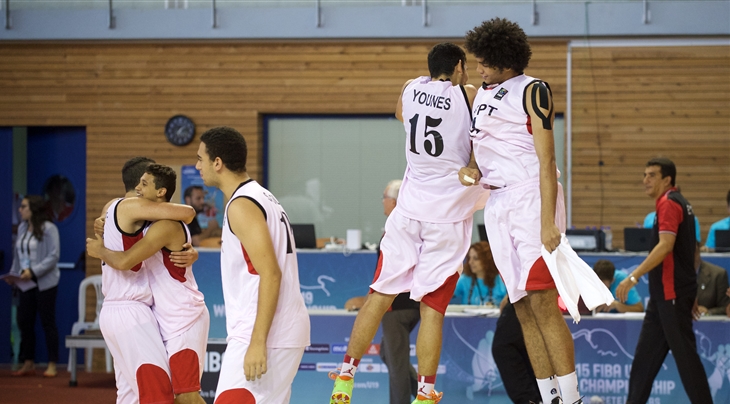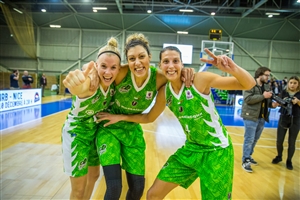
What's next for African Basketball in 2017?
SHEFFIELD (Julio Chitunda's African Message) - There is a lot at stake in African basketball in 2017, and Cairo, Bamako and Brazzaville will be the places to follow the best the continent has to offer.
Whatever the outcome of so many competitions coming up this summer on African soil, this year should be an opportunity to write a new chapter in the history of African basketball.
Cairo

A number of future stars have featured at the FIBA U19 World Championship
The Egyptian capital of Cairo will host the FIBA U19 World Championship - the first of its kind to take place on the African continent - since Tunisia organised the FIBA U19 World Championship for Women in 2005. And what makes this tournament special for Africa is the fact that the continent will be represented - for the first time - by more than two countries: Angola, Egypt and Mali.
Brazzaville

Some of the finest African players are expected in Brazzaville. Here is a look at FIBA AfroBasket 2015 All-Star team
Brazzaville in the Republic of Congo will gather 16 countries looking to prevent new African champions Nigeria from winning back-to-back championships.
Bamako
And Bamako in Mali will be the starting point for two African teams chasing a place in next year's FIBA Women's Basketball World Cup in Spain.
FIBA U19 World Championship, a game-changer chance for Africa
Ever since the FIBA U19 World Championship became a biennial event in 2007, African teams have struggled throughout, but looking at the talent pool among Angola, Mali and Egypt teams, something special could happen in Cairo.
So, there will be history made for African countries if:
- FIBA Africa U18 2016 champions Angola, runners-up Mali and hosts Egypt win three games or more each in the 16-team FIBA U19 World Championship in the Egyptian capital.
- Any of the three African representatives finish - for the first time - above the 11th-Place (Egypt accomplished the mark on two occasions).
- The African trio can beat a European counterpart for the first time in the history of the competition.
Expectations are highs among Africans, and when I asked Juan Orenga - the man in charge of Egypt senior and U19 national teams - to give us his perspective on the tournament, he had this to say: "Hosting a tournament of the U19 Worlds' magnitude in Africa will be a great experience for everybody - supporters, local players and those from other countries. I am confident it will be a great success for Egyptian basketball."
There will also be history if:

Angola finished in 2nd-Place in Tunisia 2015
- Angola - the dominant force on the continent over the past three decades - fail to win the FIBA AfroBasket 2017. After losing the tournament in 1997 and 2011, the eleven-time Africa champions bounced back in style.
- Any team other than Angola, Tunisia and Nigeria win the 16-team competition in Brazzaville. These three teams have won one the last three editions of the FIBA AfroBasket.
Meanwhile, with FIBA's New Competition System, which will see the FIBA AfroBasket taking place every four years, 2017 will certainly be the last chance for a number of players to win Africa's most prestigious basketball trophy.
And, obviously, there will be the FIBA Africa U16 Championships.
May 2017 be the year of African basketball greatness.
Julio Chitunda
FIBA
FIBA's columnists write on a wide range of topics relating to basketball that are of interest to them. The opinions they express are their own and in no way reflect those of FIBA.
FIBA takes no responsibility and gives no guarantees, warranties or representations, implied or otherwise, for the content or accuracy of the content and opinion expressed in the above article.

















